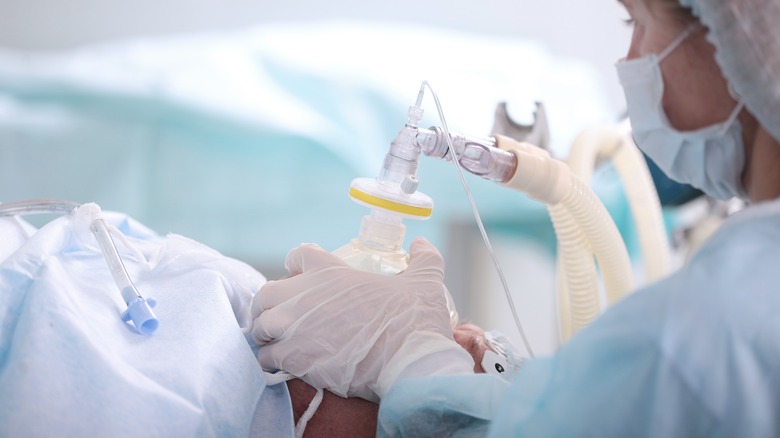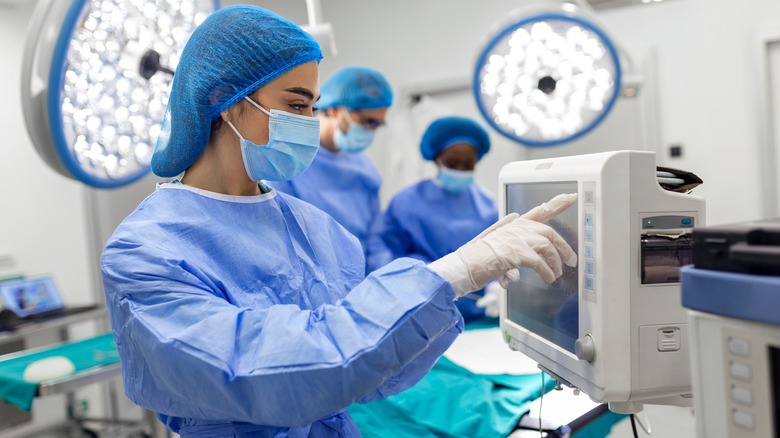What Happens If You Wake Up During Surgery?
During surgery, anesthesia may be used to medically induce the patient into a state of sedation, reports Healthline. While not quite the same as being asleep, a patient under anesthesia will be unconscious to the point where they are unable to communicate, feel pain, and will have no memory of the procedure following the surgery.
Depending on the type of procedure being performed, a patient may undergo anywhere from minimal levels of sedation to deep sedation. In cases of minimal sedation, the medicine will induce a calming effect but one's physical or mental state should remain unaffected. With moderate sedation, one is put into a reduced state of consciousness, where the patient may be able to interact and communicate, but their memories will likely be fuzzy. General anesthesia will be used when placing patients into deep sedation, or the lowest state of consciousness. In this state, patients are unlikely to feel pain or have any memories of the procedure. They may also need medical support for functions such as breathing and regulating blood pressure.
Although rare, the American Society of Anesthesiologists reports that roughly one or two people who undergo general anesthesia per every 1,000 surgeries may experience what's known as anesthesia awareness, or "waking up" in the midst of surgery.
How doctors respond when a patient shows signs of anesthesia awareness
Anesthesia awareness can occur if a patient receives an incorrect dose of anesthesia, the wrong medication altogether, or if equipment malfunctions while administering the medicine (per Healthline).
For those who regain consciousness during surgery, patients often describe feelings of helplessness, sensations of pain or pressure, awareness of breathing difficulty, or memories of conversations during the procedure. Paralysis, hallucinations, and choking sensations have also been reported by patients, reports CNN. Usually, periods of anesthesia awareness don't last long. Rather, 75% of cases reportedly pass in less than five minutes.
Even so, it is estimated that 40% of patients are either moderately or severely psychologically affected after having experienced anesthesia awareness, reports BBC. For this reason, doctors take extra precautions to reduce the chances of anesthesia awareness occurring during surgery by monitoring a patient's vital signs (per the Cleveland Clinic). "Typically, the patient's blood pressure and heart rate would go up before they would regain awareness. So we monitor those vital signs to guide the amount of anesthetic that we use," explains anesthesiologist, Dr. Christopher Troianos to the Cleveland Clinic. According to Healthline, in the event that a patient shows signs of regaining consciousness, doctors will increase the dose of anesthesia.


